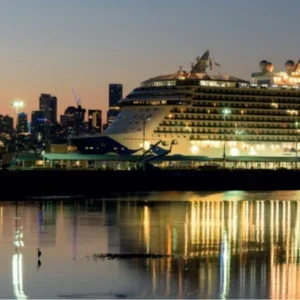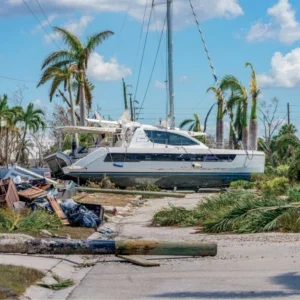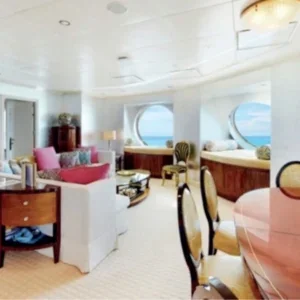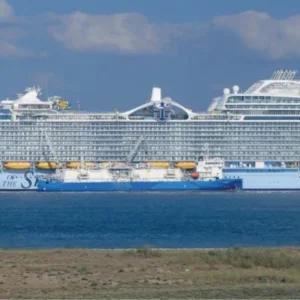The International Bunker Industry Association (IBIA) has 600 member organisations, encompassing the whole spectrum of marine fuel supply, from oil majors to shipowners, charterers, lawyers, port authorities and associated companies in measurement, surveying and quality testing.
"From the beginning to the end delivery," is how new chief executive Peter Hall likes to put it. His own industry experience is equally wide-ranging, including two decades at sea in the Merchant Navy, and a recent spell as harbour master of the Gibraltar Port Authority.
Now, bringing in the fuel of the future is his prerogative. Marine fuels are undergoing a significant change, spurred by two drivers: legislation and price.
"Cost has made marine fuels an issue from the basement to the boardroom," Hall quips. "That’s why it’s important that the IBIA is interacting with like-minded organisations."
At this time, he says, it’s unclear as to how much market share each potential alternative fuel may take up.
"We’re seeing a number of alternatives under consideration and we’re still in the trial stage, says Hall. "We need to be much broader in our perspective. Gas is a marine fuel – so are ethanol, wind, solar, batteries. Equally, there is the possibility of adapting the existing fuel supply. We need to work with emerging manufacturers so we can advise, inform and educate the whole membership chain."
Fuelling change
Since taking over the role from Cliff Brand in March, Hall has noted a round of industry events, including a recent conference, where refiners had a significant presence. Their concerns were focused on demand for marine fuels and the ability to supply.
"The implications of this, and changing a refinery from x amount of distillate to y amount, takes time," he explains. "You need to identify the availability of the type of fuels required, to identify the consequences and the necessary adaptations. That will take a number of years."
He feels that the industry needs to engage more actively in the debate, and welcomes the fact that "terrestrial industry has responded very positively." However, he stresses that the marine sector faces a difficult time equation around research, development and availability that "we need to push on with".
Hall adds: "The companies have had many questions about what’s happening and what it all means. A few were very straightforward in approaching us and asking for help. There were also some confident statements: ‘Here are some ideas we’re developing right now. What do you think?’"
"The Maritime and Port Authority of Singapore (MPA) looked at the information, reached some decisions, and declared they were looking into developing LNG bunkering with a group of partners including Det Norske Veritas (DNV) Clean Technology Centre. Subsequently, they approached the IBIA and said, ‘We’ve now got this far; can you help us and comment on the training and safety aspects?’."
The MPA’s choice, liquefied natural gas (LNG), has much lower emissions than conventional marine diesel oil. LNG bunkering is the practice of refuelling LNG vessels from specially equipped trucks, barges or onshore tanks; however, this is only one aspect of MPA’s environmental strategy.
From July, its extensive Green Ship Programme was expanded still further in an effort to incentivise Singapore-flagged ships to adopt approved sulphur oxide (SOX) scrubber technology. This comprises a 25% reduction of their initial registration fees and a 20% rebate on their annual tonnage tax. That’s on top of the existing 50% reduction on initial registration fees and 20% rebate on annual tonnage tax for ships that exceed the International Maritime Organisation’s (IMO) Energy Efficiency Design Index.
Singapore-flagged ships adopting both energy-efficient designs and approved SOx scrubber technology that exceeds IMO requirements will be rewarded with a 75% cut in their initial registration fees and a 50% rebate on their annual tonnage tax. Under the Green Port Programme, the reduction in port dues for ocean-going vessels that use clean fuels or approved abatement technology for their entire stay in the Port of Singapore will be raised from 15% to 25%. A new tier of port dues reduction of 15% will be introduced for ocean-going vessels that burn clean fuels or use approved abatement technology only at berth.
LNG is also making waves in Europe. In early September, the Trans-European Network for Transport (TEN-T) revealed its funding plan for seven key projects that it hopes will encourage the setting up of LNG bunkering facilities for ships. Gothenburg and Rotterdam schemes are allocated €34 million, and there will be detailed feasibility studies for installations on the Spanish Mediterranean coast, including $1 million for Roscoff (France) and Santander (Spain), which will help operator Brittany Ferries and the two port authorities to assess LNG’s prospects as an alternative fuel.
This is likely to lead to LNG-fuelled newbuilds or retrofits to existing ferries. Additionally, the LNG Masterplan for the Rhine-Main-Danube studies LNG as a viable fuel for inland vessels, and for cargo transported on waterways and distributed via inland ports, involving feasibility studies, concepts, technical trials and pilot deployments of vessels and terminals. This project is recommended for TEN-T funding of over €40 million.
Likely impact
The emissions legislation in question includes European Council Directive 1999/32/EC aimed at reducing sulphur content to 1% in fuel oil and 0.2% in distillate, which is now in force, and the IMO’s Marpol annex VI. Implemented in 2005, the latter limited the maximum sulphur content of fuel to 4.5%, and reduced allowable sulphur content to 3.5% from 2012 and 0.5% after 2020.
Amendments in Directive 2005/33/EC and Directive 2012/22/EU designated the Baltic Sea, the North Sea and the English Channel as sulphur emission control areas (SECAs) and stipulated that heavy fuel and sulphur content should be slashed to 0.1% by January 2015.
"From the IMO’s perspective, there will be questions as to whether sufficient fuel is available," says Hall. "However, the European Commission makes it clear that it has to happen. Ship operators using heavy fuel oil must either adapt their systems or take on lower-sulphur-content fuel. Shipowners are looking at variants of how to achieve the same objectives."
Hall gives the example of cruise operator Carnival Corporation, which in early September announced plans to spend $180 million installing scrubber technology on 32 vessels. The company will be using original fuel oil but cleaning down the emissions at the exhaust stage.
The US Environmental Protection Agency (EPA), US Coast Guard and Transport Canada have all backed this decision. Carnival was a partner in the development of the technology and will concentrate on perfecting design and installation aspects on ships with a range of engine configurations up to mid-2016.
"There is a still a readily available supply of 3.5% heavy fuel oil sulphur content, so it’s possible to work on the premise that the fuel will be there for the medium term," Hall points out. "Therefore, you can use that supply and adopt a basement technology, which in this case means cleaning down the emissions to meet EU and US emissions legislation."
This latest generation of scrubber technology involves the removal of sulphur, as well as a drastic reduction in particulate matter and black carbon. When the exhaust gas cleaning technology is fully operational on Carnival’s subsidiary ships, they will exceed ECA standards. Carnival’s technology will also help to keep fuel costs under control. The company must apply to flag states for the relevant permits in order for trials to proceed, but it has hopes of eventually expanding the technology beyond the initial 32 ships.
"The inspection of fuel and sulphur content emissions has been ongoing since the mid-2000s," Hall concludes. "It was slow to start, a gradual process of enforcement, but it’s gathering pace. We’re now hearing questions around the likely process for testing and evaluation, about the quality of inspection and consistency of testing. We’re joining the conversation, listening, gathering information and working to support consistent standards in this area."






